ISO vs SOC 2: Which Security Standard is Right for My Startup?

Ritika Jain
July 26, 2024

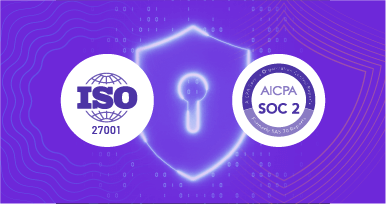
For any startup, especially those handling sensitive data, establishing trust with customers is crucial. This is where security standards like ISO 27001 and SOC 2 come in. They provide a framework to secure and protect customer data, reassuring your customers that their data is safe and giving your business a competitive edge to win deals faster.
However, for many startups, compliance is often lower on the list of company priorities as starting a compliance program requires a great deal of time, effort, and planning. And knowing where to begin is half the battle.
Are you facing the same hurdle and wondering if your organization should focus on ISO 27001? SOC 2? or Both? Read on to understand these standards, their objectives, how they defer, and how you can choose the right framework and stay compliant. Let’s delve in:
What is ISO 27001?
The International Organization for Standardization (ISO) created ISO 27001, a widely recognized information security management standard. First published in 2005, ISO 27001 is the latest version of the standard, which replaced the previous BS 7799 standard. It has since become a global benchmark for information security, with organizations in over 175 countries adopting it.
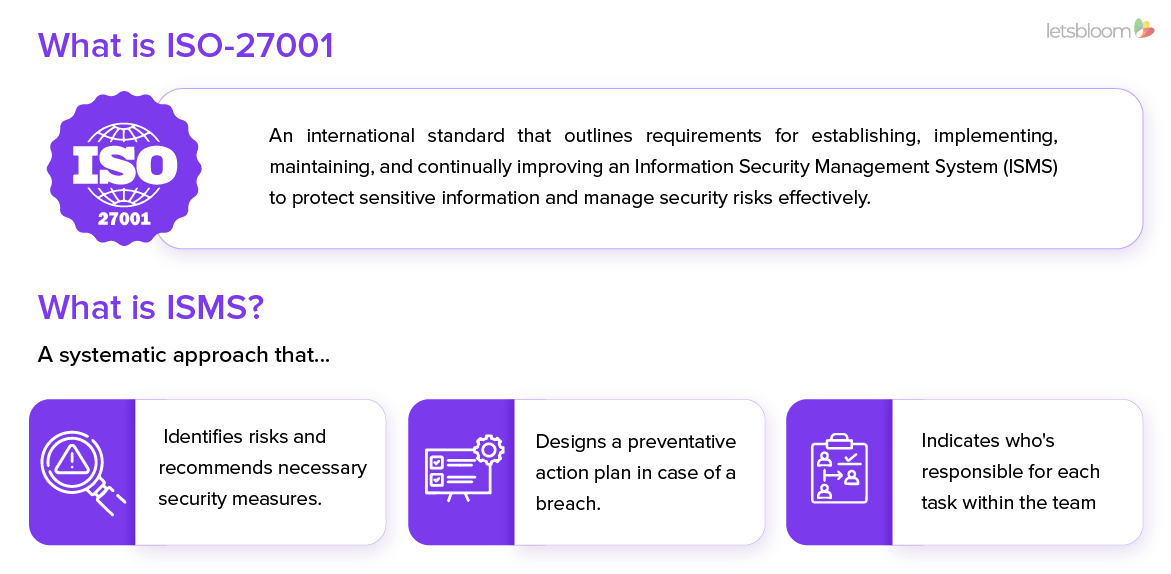
ISO 27001 provides a comprehensive framework for implementing, maintaining, reviewing, and continually improving an organization’s Information Security Management System (ISMS). It aims to help organizations protect their information assets from security risks and ensure confidentiality, integrity, and availability of data with appropriate security controls.
ISO 27001 certification demonstrates to customers and partners that your organization takes information security seriously. It emphasizes your commitment to protecting sensitive data and managing risks effectively. This certification is often sought by organizations that want to showcase their dedication to security and gain a competitive advantage in the market.
What is SOC 2?
Developed by the American Institute of Certified Public Accountants (AICPA), SOC 2 (System and Organization Controls) defines criteria for managing customer data based on 5 Trust Service Criteria - Security, Availability, Confidentiality, Processing Integrity, and Privacy. This voluntary standard evolved from the earlier SAS 70 auditing framework, which was initially published in 1992. Over time, it has become a critical standard for service organizations, especially those handling sensitive data in the cloud computing and SaaS industries.
The primary objective of SOC 2 is to "assure the effectiveness of controls at a service organization relevant to the security, availability, processing integrity, confidentiality, and privacy of its systems and the data it processes".
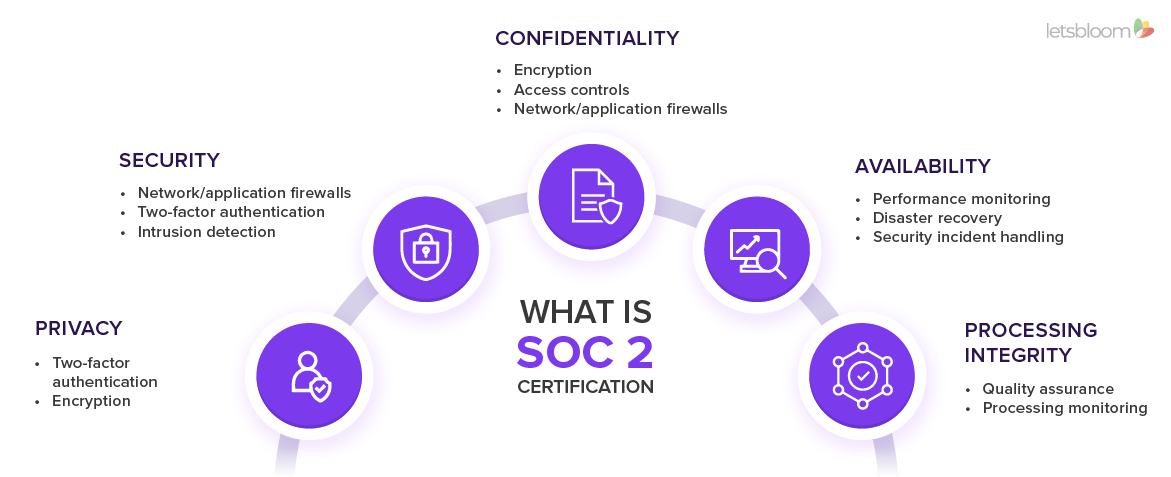
SOC 2 certification signals the customers that their data is secure and handled with integrity and privacy. The audit reports provide detailed information to stakeholders about the effectiveness of security controls. It is particularly important for SaaS and cloud-based startups as it demonstrates their ability to protect customer data in the cloud effectively. SOC 2 is often a requirement for winning deals with larger enterprises that need assurance about the security practices of their vendors and partners.
Similarities between ISO 27001 and SOC 2
Both ISO 27001 and SOC 2 share the common goal of protecting sensitive data and ensuring robust security practices. They both provide frameworks that help organizations identify risks, implement controls, and improve their security posture.
From a business perspective, implementing either of these standards will result in several similar outcomes:
- Enhanced Security : Both standards will help you establish robust security practices, policies, and procedures, reducing the risk of data breaches and enhancing the overall security posture of your organization.
- Risk Management : ISO 27001 and SOC 2 emphasize risk identification and management. By following these standards, you will develop a comprehensive risk assessment process, helping you make informed decisions about security controls.
- Continuous Improvement : Both frameworks encourage a culture of continuous improvement. They provide guidance on monitoring, reviewing, and improving your security practices over time, ensuring your organization stays secure as it grows and evolves.
- Customer Trust : Achieving either certification demonstrates your commitment to data security and sets you ahead of the competition.
Difference Between ISO 27001 and SOC 2
Both ISO 27001 and SOC 2 share the common goal of protecting sensitive data and ensuring robust security practices. They both provide frameworks that help organizations identify risks, implement controls, and improve their security posture.
| Comparison Point | SOC 2 | ISO 27001 |
|---|---|---|
| Target Market | SOC 2 is primarily focused on the US market, though it is gaining recognition internationally, especially in the tech sector. | ISO 27001 is a globally recognized standard, making it attractive to organizations seeking to do business internationally. |
| Applicability | Specifically designed for service organizations, particularly those handling sensitive data, such as SaaS, cloud service providers, and technology companies. | Applicable to a wide range of organizations, including businesses, government agencies, and non-profits, regardless of size or industry. |
| Audit Cost | SOC 2 tends to be more affordable, as it focuses on specific controls and does not require ongoing surveillance audits. | ISO 27001 certification can be more costly due to its broader scope and the need for ongoing surveillance audits. |
| Flexibility | SOC 2 has more prescriptive requirements, and organizations must meet specific criteria to achieve certification. | ISO 27001 provides a high level of flexibility, allowing organizations to design a customized ISMS that fits their specific needs. |
| Reporting | SOC 2 results in a detailed report on the effectiveness of an organization's internal controls, providing transparency to users and stakeholders. | ISO 27001 requires a formal certification audit to assesses the effectiveness of ISMS, resulting in a certificate and the ability to use the ISO logo. |
| Timelines | SOC 2 compliance can take 6-12 months. | ISO 27001 compliance can take around 6-24 months. |
NIS2 & DORA – Are You Cyber-ready?
Download this eBook for insightful tips to ensure your organization operates with unwavering resilience.
Choosing the Right Framework for SaaS Startups – The Smarter Way to Get Compliant
For SaaS startups, the decision to prioritize one framework over the other depends on several factors, including your target market, budget, customer requirements, and business goals.
1. When to Choose SOC 2?
If your startup primarily serves US-based customers, especially in the IT sector, SOC 2 should be your initial priority. It is also more affordable and less time-consuming to achieve, which is crucial for startups with limited resources.
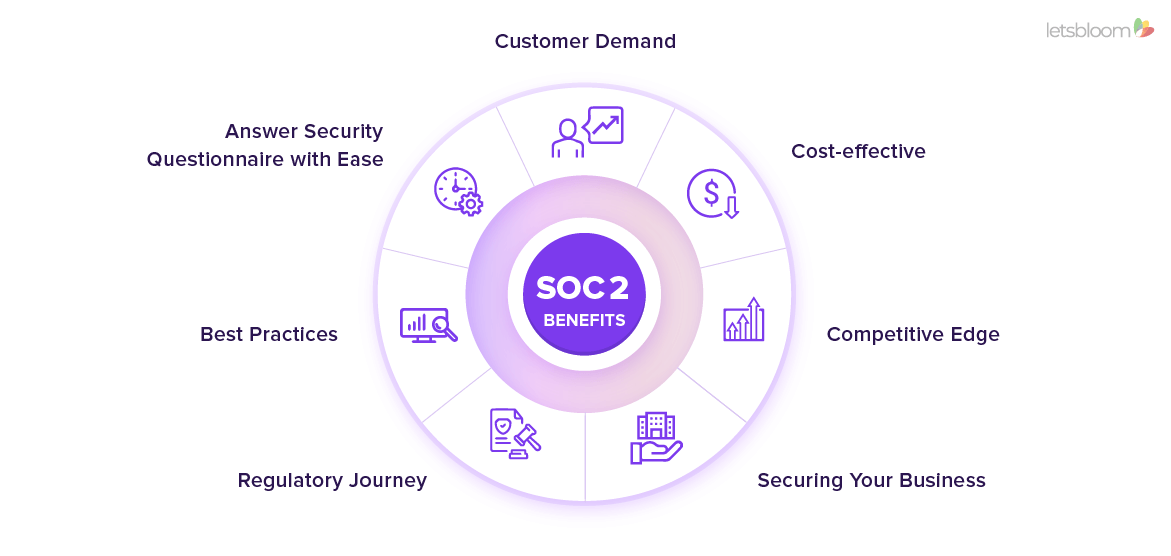
2. When to Choose ISO?
If your SaaS business has ambitions to expand internationally or wants to establish a robust security foundation from the outset, pursuing ISO 27001 certification should be a priority. ISO's flexibility allows you to design a security framework tailored to your specific needs, and its global recognition will open doors to new markets.
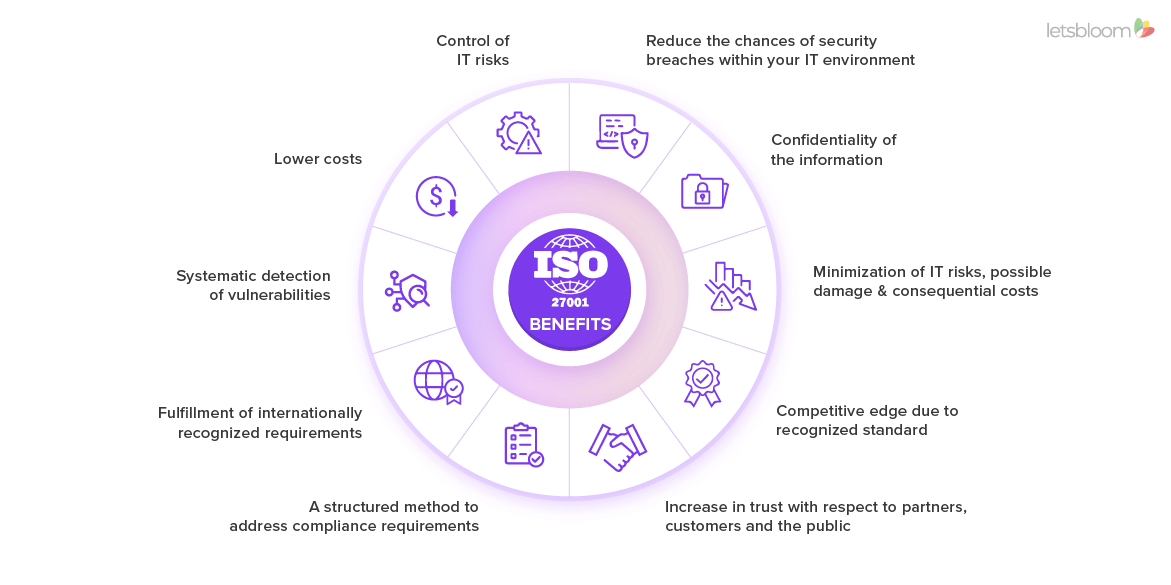
3. When to Choose Both?
In an ideal world, SaaS startups should aim for both certifications. Achieving ISO 27001 and SOC 2 certifications together demonstrates an unparalleled commitment to security and can set your startup ahead of the curve. Consider both frameworks when you want a well-established security program that is compliant across borders.
Managing Certifications on an Ongoing Basis
Achieving ISO 27001 and SOC 2 certifications is just the beginning. To maintain these certifications, businesses must implement ongoing management practices :
- Document and Review Policies : Maintain up-to-date documentation of your security policies, procedures, and controls. Regularly review and update these documents to reflect any changes in your organization or the regulatory landscape.
- Monitor and Measure : Implement key performance indicators (KPIs) and metrics to monitor the effectiveness of your security controls. This allows you to identify areas for improvement and demonstrate continuous progress.
- Train and Educate : Provide regular security awareness training to your employees to ensure they understand their roles and responsibilities in maintaining security.
- Conduct Audits : Perform internal audits to identify areas of non-compliance and take corrective actions. For ISO 27001, external surveillance audits are also required to maintain certification.
- Stay Informed : Keep up-to-date with changes to the standards and best practices. Both ISO 27001 and SOC 2 evolve over time, and your business must adapt to stay compliant.
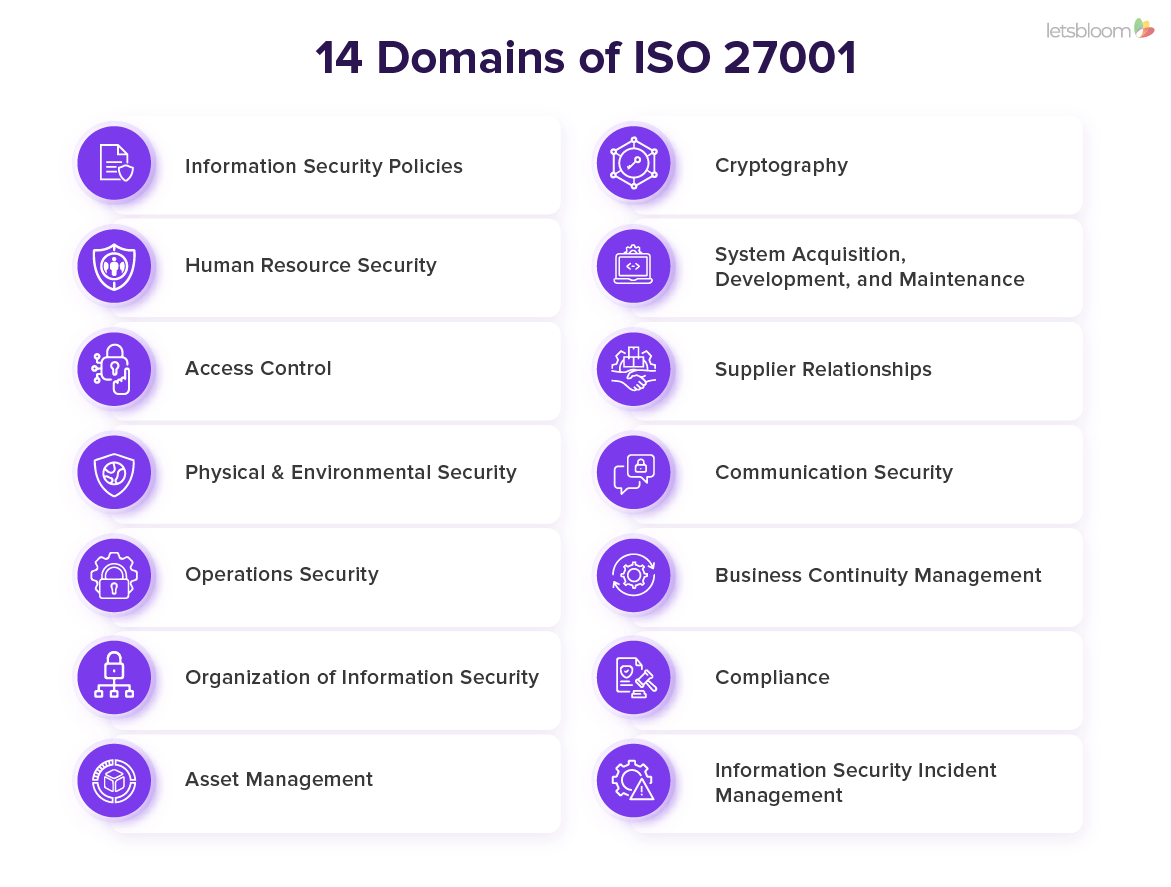
How Can We Help You Make the Right Choice and Stay Compliant?
Choosing the right security standard for your startup depends on your unique needs and goals. ISO 27001 offers a comprehensive, flexible framework suitable for a wide range of organizations, while SOC 2 provides detailed assurance for SaaS and cloud service providers.
At letsbloom, we understand the challenges startups face in navigating the regulatory landscape. Our team of experts can guide you through the process of selecting the right framework, implementing a compliance program, and maintaining certifications.
Our unified cloud security and compliance management platform makes achieving SOC 2 or ISO compliance faster and more affordable for startups. The automated evidence collection and continuous monitoring feature helps reduce manual efforts by 70% and be audit-ready in weeks, instead of months. What’s more? The platform provides comprehensive visibility into your compliance posture against 100+ global regulatory benchmarks and industry standards, not just SOC 2 and ISO 27001.
Most Frequently Asked Questions (FAQs) About SOC 2 and ISO 27001
1. Does ISO 27001 cover SOC 2?
No, ISO 27001 does not directly cover SOC 2. While there is some overlap between the two standards in terms of information security controls and practices, they have different scopes and purposes. ISO 27001 is a comprehensive standard that provides a framework for establishing an Information Security Management System (ISMS), covering various aspects of information security. SOC 2, on the other hand, is an auditing procedure specifically designed to ensure that organizations handling sensitive data have adequate security, availability, integrity, confidentiality, and privacy controls in place.
2. What's the difference between a Type I, Type II, and Type III SOC 2 Report?
- Type I SOC 2 Report : This report focuses on the suitability of the design of an organization's controls at a specific point in time. It describes the controls the organization has in place and asserts whether they are suitably designed to meet the relevant trust services criteria.
- Type II SOC 2 Report : This report evaluates the operating effectiveness of an organization's controls over a period. It includes all the information from a Type I report but also assesses whether the controls are functioning as intended over a specified period, typically six months to one year.
- Type III SOC 2 Report : This is a legacy report type that was previously used for reporting on historical periods. However, it is no longer commonly used, and most service organizations opt for Type I or Type II reports.
3. Is an ISO 27001 certification easier to obtain?
ISO 27001 certification can be challenging to obtain, especially for organizations new to information security management. It requires a significant commitment of time and resources to implement the necessary policies, procedures, and controls. However, the flexibility of the ISO 27001 framework allows organizations to tailor their Information Security Management System (ISMS) to their specific needs, which can make the certification process more manageable.
4. Which compliance standard can I implement more quickly?
SOC 2 tends to be more straightforward and faster to implement than ISO 27001. SOC 2 has more prescriptive requirements, and the scope is often narrower, focusing specifically on data security controls. As a result, startups and small businesses can often achieve SOC 2 compliance more rapidly. In contrast, ISO 27001 has a broader scope and may require more time to implement, especially for larger or more complex organizations.
5. How does the audit process differ for ISO 27001 and SOC 2?
The audit processes for ISO 27001 and SOC 2 differ in several ways: ISO 27001 audit process involves a certification audit conducted by an accredited certification body. This audit typically includes document reviews, interviews with staff, and on-site inspections to ensure the ISMS meets the requirements of the standard. If successful, the organization is awarded ISO 27001 certification, which is valid for three years, subject to ongoing surveillance audits.
SOC 2 audits are conducted by certified public accountants (CPAs) or specialized audit firms. These audits focus on evaluating the design and operating effectiveness of security controls against the five trust services criteria. The resulting report is distributed to users and stakeholders, providing detailed transparency into the organization's security practices.
6. How often are SOC 2 and ISO 27001 certifications renewed?
- SOC 2 reports are typically valid for a period defined by the auditor, usually ranging from six months to one year. To maintain SOC 2 compliance, organizations must undergo regular audits to generate updated reports for users and stakeholders.
- ISO 27001 certification is valid for three years, after which recertification is required. During these three years, ongoing surveillance audits (typically annual or biannual) must be conducted to ensure continued compliance.
7. Can an organization be both SOC 2 and ISO 27001 compliant?
Yes, an organization can achieve both SOC 2 and ISO 27001 compliance. While there may be some overlap in the security controls and practices addressed by each standard, they complement each other well. ISO 27001 provides a comprehensive framework for information security management, while SOC 2 offers detailed assurance about specific security controls. Achieving both certifications demonstrates a strong commitment to data security and can enhance an organization's reputation and trustworthiness.
8. Who should consider getting ISO 27001 and SOC 2 accreditation?
- ISO 27001 : Any organization that wants to establish, implement, maintain, and improve an information security management system can benefit from ISO 27001 certification. This includes businesses, government agencies, and non-profits, regardless of size or industry.
- SOC 2 is particularly relevant for service organizations, especially those handling sensitive data, such as SaaS companies, cloud service providers, financial institutions, and healthcare organizations. If your organization provides services that impact the security, availability, or privacy of customer data, SOC 2 accreditation is highly recommended.
Why wait? Begin your SOC 2 and ISO compliance journey now with a 30-day FREE trial. No credit card is required. Request a FREE demo!










